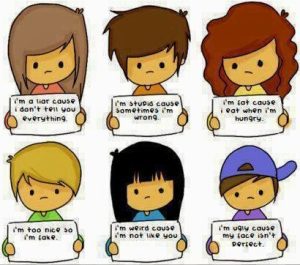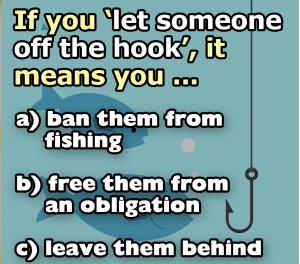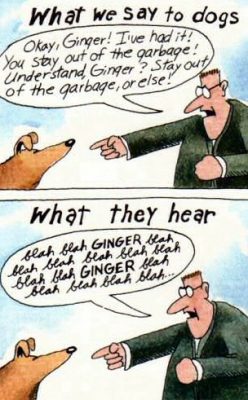Podcast: Play in new window | Download
 In the land of Israel 2000 years ago only 10% of people were wholly judgmental…
In the land of Israel 2000 years ago only 10% of people were wholly judgmental…
It isn’t the Bible, it is what the church says, right and wrong, is that encourages you to judge.
Judging something or someone wrong causes an immediate reduction of tension.
Tension between high emotion and the resting, neutral emotional state.
It’s the law of thermodynamics (Physics anyone? First law of thermodynamics, also known as the law of conservation of energy, states that energy can neither be created nor destroyed, but it can be changed from one form to another.). Heat moves to cool. A ball that you throw up returns to the surface of the Earth, often through your hands.
If you can’t bear the tension, if you are a pansy, you judge. But either way, the emotion needs to come back to neutral.
There is a species of birds that have to come down, right after birth, from a pinnacle they nest on to a ravine where their food is… sounds weird but that is what the members of this species, arctic barnacle geese have to do to survive. The little chicks, covered with soft feathers, need to fall off the height, hitting every rock… and most of them ends up fine… some die. But the ones that live will live.
Here is the video:
I don’t judge. Instead I opinionate. I assess. They are not the same.
- Judging happens in the black and white paradigm.
- Opinionating/assessing happens in the extrinsic paradigm where things have more facets that just right and wrong.
Here is a judgment about someone killing another with one hit: ‘that is wrong!’
Here is an opinion about the same thing: ‘huh, that hit was disproportionate to the offense!’ Watch the new facet!
Interestingly, my judging students cannot hear, cannot see the difference. So judging is not only in the speaking, judging is also in the listening. It is the paradigm, not just an isolated action. They hear wrong in everything… and even the details also mean to them wrong, wrong wrong.
The 3 paradigms of value
Because I live in the higher paradigms, extrinsic and intrinsic where you can feel, I HAVE TO FEEL what a human is designed to feel when I look at something violent, or unfair, or nasty, or treasonous happening. And feeling those feelings creates tension… like a ball that is thrown up high in the air.
For a while I hold the tension. But when the tension becomes too strong to contain, I sob. I sob for a few seconds, a few minutes. I feel the pain, I feel the sadness, I feel the grief. And I feel the shame, the regret, the anger… whatever feeling the incident makes me feel.
One of my students doesn’t judge, but has too low TLB… so she chooses to leak, chooses to reduce the tension in other ways, like marijuana.
That tension, by the way, is similar to creative tension. So if you cannot take one, you also cannot take the other.
And if you can’t take the creative tension, you’ll be stuck at the bottom of the totem pole.
Judgmental students’ TLB is also low: they never trained themselves to see themselves able to take what is coming…
They judge so that they don’t have to feel anything. Or so that they can feel high and mighty.
They don’t cry because they don’t have to. They’d released the responsibility of feeling their feelings, feeling bad for people, feeling bad for life. Released their responsibility to be human to judgments.
 They wiggle off the hook. If that is not enough, they justify. ‘See, I am good, because I am the one judging!‘
They wiggle off the hook. If that is not enough, they justify. ‘See, I am good, because I am the one judging!‘
They don’t know that there is no joy, no happiness, no fulfillment off the hook, only on the hook. (This must be another false belief, or a group of false beliefs. We’ll look at them later)
When you judge, you separate yourself from what you are judging, you fancy yourself above it, I think. You are not in there with them, you are not in life, you are above, and faultless, better, not connected.
Moreover, you put yourself above, where there is no chance for love, no chance for belonging, no chance for compassion.
 You don’t cry except for self-pity.
You don’t cry except for self-pity.
You feel sorry for yourself: bemoan your fate. Like the weeping willow… victim to the core.
When you judge, you are not a person who sees someone do bad, or do evil, or perform poorly… no. You are a measuring machine about another machine… no humanity, no personhood, no who, only what.
Every time you judge, you just caused yourself to feel worse… worse about you. Because the more you judge the more you are a machine, not a human, not feeling.
But the solution is not to judge yourself for judging… That would be doing more of the same then.
So if you are one of those judgmental people… what can you do to become human?
The solution is not to force yourself not to judge.
Or force yourself to say ‘not wrong’, or something like that, something that you don’t believe.
No, the solution is to get down there with what or who you would judge, onto the same playing field, and feel into it. Identify with it. Feel the dynamic. Look what they see… Have a lot to see, have a lot to say about them. The details… the seemingly irrelevant, because who would care about all that if you already knew they are guilty of being wrong?!
Become a person. Not in your head, no. Not in your imagination. Become a person in reality. On the field. There WITH them.
Get out of your mind… and into life.
And, of course, prepare yourself for a lot of crying… for a while. The more you can cry for grief, etc. the more you will enjoy joy, happiness, love, affinity, peace of mind.
I know it sounds counter-intuitive. What we consider intuitive is actually bred, learned, not intuition, not even instinct. You have been bred, through millennia. To be unfeeling, uncaring, unloving.
Humanity, carefully and systematically been bred to be an unfeeling killing machine. Killing on demand.
Killing is busy work, and time consuming, so it’s been always delegated to the well trained killing things, that look just like you and me, and do the work of killing. No emotions. Just the judgment: ‘they are the enemy. They must have done something wrong, they are bad according to church and country.‘
You either continue being what you’ve been bred for, or you revert to become a person again.
Will it be easy? No. Is it more pleasant to be a person? No. You’ll have to feel everything, but you’ll feel joy too. And affection. And belonging.
The writers of the Star Trek didn’t invent anything new: they just had to look deeper to find how it is, in reality.
 The Borg is how it really is… except in the show’s Borg you couldn’t tell who was calling the shot. In reality someone or someones are always calling the shot. And you, my friend, don’t matter, you are part of their machinery. The machinery they bred you to be a part of.
The Borg is how it really is… except in the show’s Borg you couldn’t tell who was calling the shot. In reality someone or someones are always calling the shot. And you, my friend, don’t matter, you are part of their machinery. The machinery they bred you to be a part of.
The way to revert to being human is a process. It requires you to look in reality, and use words that you’ve heard others use, but you are not in the habit of using.
In my experience, my judgmental students don’t have a working vocabulary that is rich enough to return to being human. So you’ll need words. About behaviors, attitudes, actions, results…
They are not only emotion words, as some emotional intelligence people want you to believe, though many of the words are emotion words.
Smirking, for example, is a great word… and just one of hundreds you will need to be able to see to become human again.
And you’ll need lots of practice, because what you are building is a counter-campaign to your breeding. Counter to judgmentalness. Counter to knowing-without-looking. Outside of the ‘either this or that‘ way of seeing everything.
If you don’t value become a human, you won’t do it. So like with anything, a little bit won’t go far…
You need to get on the hook for this… and then you can succeed…
You want to stay off the hook? It’s not wrong, but it is living as an object in the world of objects… left alone, or threatened all the time. With only a vague yearning for something that you can’t even name… like the memory of a distant past…
The secret key is looking. NOT thinking, not remembering, not looking in the mind. No. Looking, with curiosity, in reality.
Looking at people, looking at events… Going beyond the judgment. In the beginning even finding a word, another thing to say will be like victory.
This AND that
As long as you don’t get stuck with the wrongness, you’ll start seeing aspects, visual, auditory, behavioral that allow you to leave your fixed point: it’s wrong.
Yesterday I asked one of my students’ permission to critique his podcast. And then I talked for however long… It was a demonstration of looking at this AND that… and not on wrong.
 I am sure he heard that I said wrong, wrong, wrong. Like in the cartoon. Except as a homo sapiens you can only hear the word ‘wrong’. The rest isn’t heard. It is filtered out.
I am sure he heard that I said wrong, wrong, wrong. Like in the cartoon. Except as a homo sapiens you can only hear the word ‘wrong’. The rest isn’t heard. It is filtered out.
If you want to at least experience this, I’ll have a live session to teach this and allow participants to try their ‘hand’ on this next Tuesday.
To make it a no-brainer for the most distrustful people, I’ll charge less than ten bucks to participate. No replay, so if don’t want to come, don’t sign up.
Prepare to be surprised… Everyone I have done this process with WAS surprised… Unfortunately the wrong has a staying power, so it pays to repeat and repeat and repeat. Just like brushing your teeth once won’t do much for you… doing this process once neither.
The From Judging To Assessing workshop dovetails nicely to this Integrity Live session.
If all goes as it should (I doubt it, lol) then I’ll do that from-judging-to-assessing as a weekly training.
